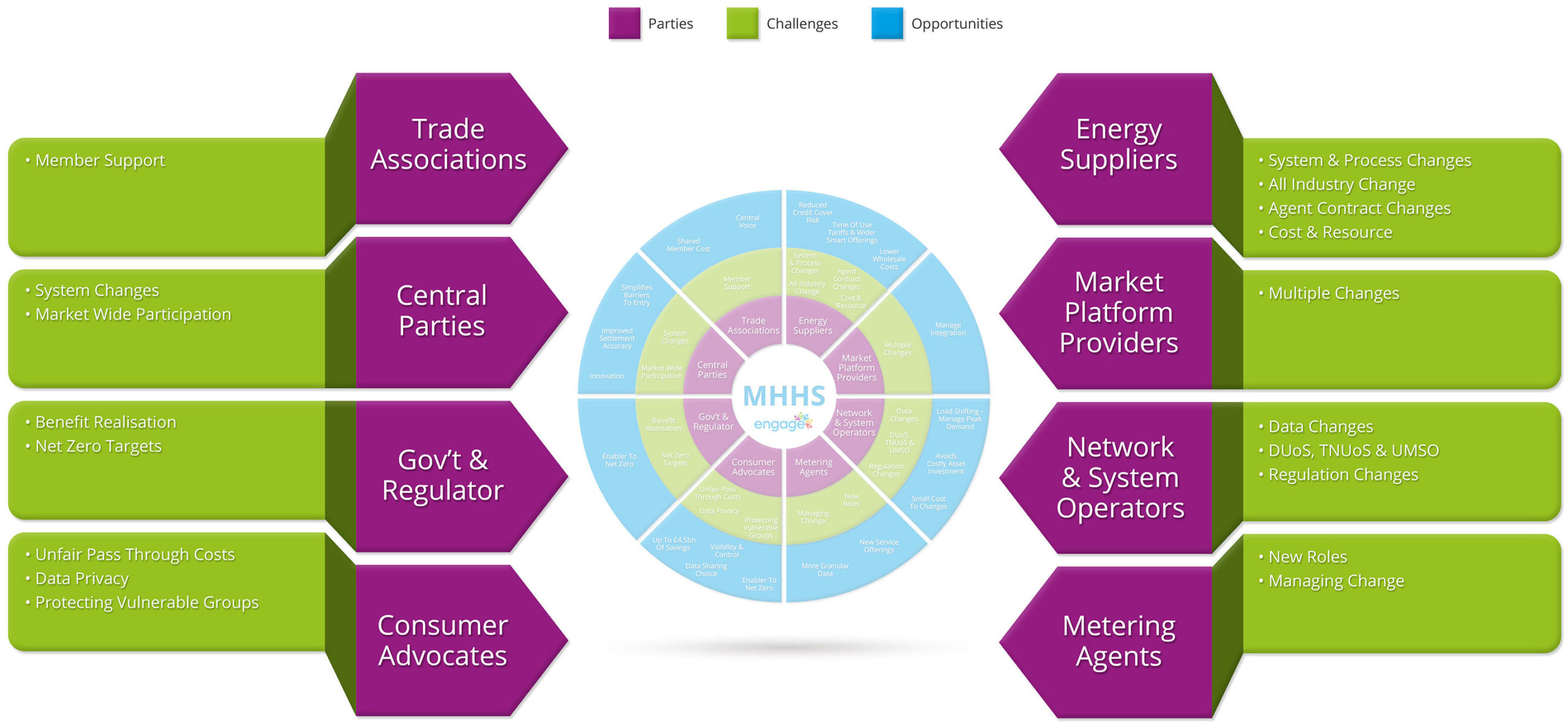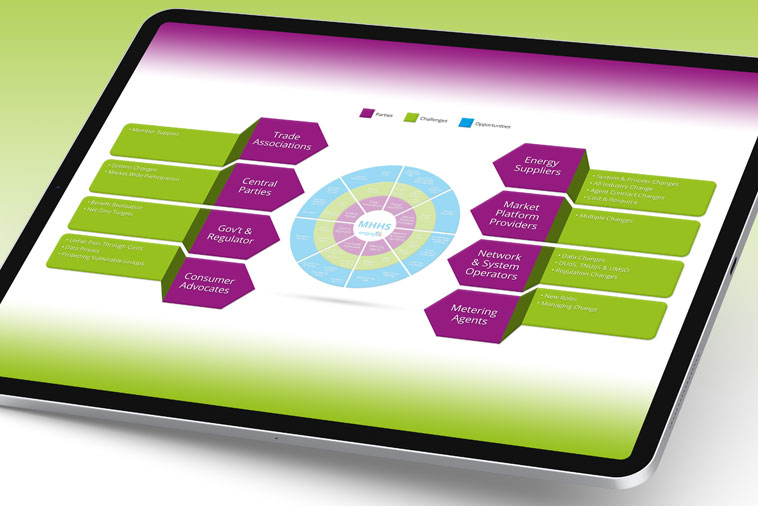As we discussed in our last quarterly newsletter, Market wide Half-Hourly Settlement (MHHS) is one of the key enablers for driving Britain towards Net Zero. As the name suggests, the MHHS programme’s aim is for all electricity market trading in Great Britain to be based on actual half-hourly demand and generation data.
The overwhelming additional electricity demands of a greener society, alongside the intermittency of key greener generation types, means that we are moving from a world where generation is simply flexed to demand to one where demand needs to flex more so to generation. In this new world, the electricity suppliers that thrive will be those that have embraced and successfully delivered MHHS – and are able to provide products and services that benefit their customers and provide the demand flexibility needed to meet the challenging targets of Net Zero.
MHHS will involve significant industry collaboration and changes will extend to the regulatory framework, central systems and processes, as well as suppliers’ internal systems and processes. Some existing industry roles will disappear and new ones will emerge. There will also need to be concerted efforts to ensure all meters are capable of recording and delivering half-hourly data, so that Settlements can more accurately allocate energy to the periods in which it is used – resulting in better cost reflectivity and enabling effective price signals required to deliver flexibility.
For many, this will feel like another change programme to add to an ever-growing list of tomorrow’s worries, not least with the current challenges facing the energy market this winter. Other delivery concerns will also be at the forefront of participants’ minds.
Several will be worried about the resource and budget needed to deliver the stack of mandated changes required in the same timeframe as MHHS, with the biggest obstacle seen by many as the completion of smart metering roll out – the primary dependency for MHHS’ success. Whilst the mandatory annual installation targets coming into effect from next year will go some way in overcoming this obstacle, some will be questioning the effectiveness of running both delivery programmes in parallel. It’s also not guaranteed this will ensure all homes have smart meters – there are likely to be homes that can’t or won’t have a meter installed despite the mandatory targets.
If suppliers are to retain the principal relationship with customers in the longer term, they will need to transform energy retail from a transactional relationship based on a commodity into an ongoing relationship based on services. For this, MHHS readiness is crucial.
This transformation will require updates far beyond MHHS mandated changes and changes to customer management and billing systems. Data analytics will be required to understand consumer usage behaviours and engagement will be required to understand customers’ evolving wants and needs.
Innovative products and services will need to be designed that provide benefits to these customers and influence their behaviours, as Net Zero enabling technologies such as EVs, heat pumps, storage and home energy management applications continue to emerge and evolve. Consideration will also need to be given to those customers who might be less able to access these benefits, such as the fuel poor.
Cost and revenue models will evolve and these will require adapted means of managing risks. New systems and processes will be required to dynamically deliver customer demand flex through the products and services in place, based on market price signals. These will also require a new and more responsive means of forecasting energy requirements and trading.
The challenge of doing this for some suppliers shouldn’t be underestimated. Depending on their current systems, this could be a costly and lengthy change, irrespective of whether improvements are limited to introducing Time of Use tariffs initially or more complex products and services as the sector evolves.
So, do all these challenges mean MHHS delivery should be tomorrow’s problem? In short, quite the opposite. Failing to assess and plan adequately for these changes now has consequences beyond simply needing to manage a peak of “just in time” programme delivery a few years down the line.
Electricity suppliers that thrive in the future MHHS world will be those that start planning and adapting for these changes now, placing them in a much stronger position to take advantage of the opportunities MHHS brings. These are complex changes so should be approached with a collaborative, build once, build right mindset.
Some suppliers are already proactively adapting by developing platforms with the future in mind – Octopus with their Kraken platform or Ovo with Kaluza, for example. Failure to engage with the programme or only consider MHHS as tomorrow’s concern risks being left behind with unnecessary costs and a business model that doesn’t meet future market and consumer needs.
Is the journey to a half-hourly settled, flexible energy system a challenging one? Yes, but it’s one participants, particularly suppliers, need to start planning for now.
For more information, please contact us.
















